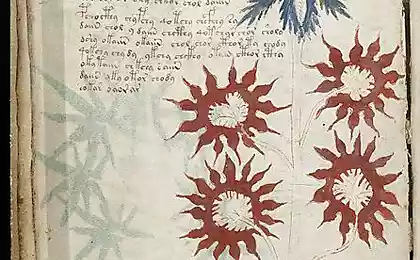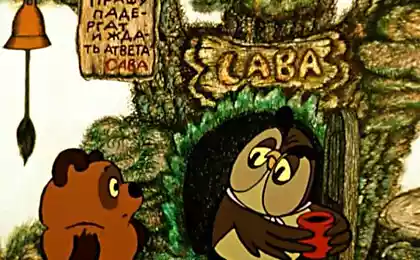169
List of phraseologies in which even an obsessed Russian teacher is mistaken
The use of phraseology makes our speech more capacious, emotional and figurative. But the original meaning of these phrases often remains unclear, causing us to have serious difficulty writing them.

What is the difference between hyena and hell, is it possible to “bring to the white knee” and why not “drive into summer”? Answers to these and other intricate questions about phraseology in our article.
Use of phraseology Write: bring to the white knee. Correct: bring to white heat "Is anyone writing like that?" - a literate reader will be surprised. They write all the time. And Google's ubiquitous witness to that. When asked to “bring to the white knee”, we find 1,100,000 results. And on request “bring to white heat” – only 142000.

A number of questions arise at the junction of physiology and philology: what kind of “white knee” is it, where it is located and why it is not worth bringing to it? Of course, we are not talking about any knee here!
KandLining is the coloring of the body at high temperatures, meaning the degree of its heatedness. When the blacksmith heats the metal, it first turns red, then yellow, and only at the very end - white.
Therefore, the phrase means an extreme degree of irritation, when patience has already run out and a person has been driven to rage.
They're writing to go into summer. Just like Alla Borisovna, I really want to “let the summer not end”. But to fall into it at all desire neither I nor you will succeed. Why do they write that?

The fact is that both of the words that make up the phraseology (“to go” and “Summer”) are quite little known. Let’s start with the old word “dump”. In the explanatory dictionary of Ushakov we find: to go - quickly plunge into the water, go to the bottom. In a figurative sense, the abyss, disappear.

Summer.and In ancient Greek mythology, one of the five rivers flowing in the underworld of Hades, the river of oblivion. Her water, according to Virgil, was drunk to forget about all worries and worries.
In modern language, to fall into oblivion means an abyss forever, to disappear from the memory of people. Therefore, the second word is written with a capital letter “L” and, of course, with “y” at the end.
They say the hyena is fiery. To date, science knows only four types of hyenas: brown, spotted, tube-toothed and striped. As you can see, there is no fire among them. Where did the “hyena of fire” come from?

Just the word "gehenna" seems strange and incomprehensible. Therefore, it is easier to replace it with a consonant “hyena”. In religious mythology, hell is one of the names of hell. “And if your hand seduces you, cut it off: it is better for you to enter into life with a mutilated man than to go into hell with two hands, into an unquenchable fire, where their worm does not die, and the fire does not extinguish” (Mark 9:43).
Hyenas, of course, few like it: hind legs shorter than the front, toothy mouth and a voice resembling a mocking laugh. But do not offend them more and somehow connect them with biblical hell. Write "Gehenna of Fire" with two "N" and two "E".
It's from the ages. Right: from time immemorial, the word "iscon" was formed as a result of the merger of the preposition "from" and the Old Russian word "pokon" (in the etymological dictionary of Max Fasmer - the beginning, custom).

Thus, the combination of words means “since the beginning of centuries”, “since ancient times”. Write with the letter "c" inside - andonI'm done. It's also possible for centuries.
Written: a hose. That’s right: on the girdle is when you drink for the last time. Only in contrast to the adverb “finally” with the noun “horse” we write separately.

© Phere Writes: I listen to the half of my ear. The word "half" on the letter looks very strange, and the hand itself asks to make a space. But rules are rules. And according to them, dialects that begin with “half” (half) should be written together.

© Phere Write: know by the tooth. That’s right: to know by heart, “You must know it by heart,” teachers once told us. But how to figure out if we write together “to know by heart” and “try on a tooth” for some reason separately?
There is nothing to do, you will have to remember the spelling of the adverb in this phraseology. As you can see, there are many phraseological phrases in the Russian language that make our speech richer. But to write them without mistakes, you need to put a lot of effort!

What is the difference between hyena and hell, is it possible to “bring to the white knee” and why not “drive into summer”? Answers to these and other intricate questions about phraseology in our article.
Use of phraseology Write: bring to the white knee. Correct: bring to white heat "Is anyone writing like that?" - a literate reader will be surprised. They write all the time. And Google's ubiquitous witness to that. When asked to “bring to the white knee”, we find 1,100,000 results. And on request “bring to white heat” – only 142000.

A number of questions arise at the junction of physiology and philology: what kind of “white knee” is it, where it is located and why it is not worth bringing to it? Of course, we are not talking about any knee here!
KandLining is the coloring of the body at high temperatures, meaning the degree of its heatedness. When the blacksmith heats the metal, it first turns red, then yellow, and only at the very end - white.
Therefore, the phrase means an extreme degree of irritation, when patience has already run out and a person has been driven to rage.
They're writing to go into summer. Just like Alla Borisovna, I really want to “let the summer not end”. But to fall into it at all desire neither I nor you will succeed. Why do they write that?

The fact is that both of the words that make up the phraseology (“to go” and “Summer”) are quite little known. Let’s start with the old word “dump”. In the explanatory dictionary of Ushakov we find: to go - quickly plunge into the water, go to the bottom. In a figurative sense, the abyss, disappear.

Summer.and In ancient Greek mythology, one of the five rivers flowing in the underworld of Hades, the river of oblivion. Her water, according to Virgil, was drunk to forget about all worries and worries.
In modern language, to fall into oblivion means an abyss forever, to disappear from the memory of people. Therefore, the second word is written with a capital letter “L” and, of course, with “y” at the end.
They say the hyena is fiery. To date, science knows only four types of hyenas: brown, spotted, tube-toothed and striped. As you can see, there is no fire among them. Where did the “hyena of fire” come from?

Just the word "gehenna" seems strange and incomprehensible. Therefore, it is easier to replace it with a consonant “hyena”. In religious mythology, hell is one of the names of hell. “And if your hand seduces you, cut it off: it is better for you to enter into life with a mutilated man than to go into hell with two hands, into an unquenchable fire, where their worm does not die, and the fire does not extinguish” (Mark 9:43).
Hyenas, of course, few like it: hind legs shorter than the front, toothy mouth and a voice resembling a mocking laugh. But do not offend them more and somehow connect them with biblical hell. Write "Gehenna of Fire" with two "N" and two "E".
It's from the ages. Right: from time immemorial, the word "iscon" was formed as a result of the merger of the preposition "from" and the Old Russian word "pokon" (in the etymological dictionary of Max Fasmer - the beginning, custom).

Thus, the combination of words means “since the beginning of centuries”, “since ancient times”. Write with the letter "c" inside - andonI'm done. It's also possible for centuries.
Written: a hose. That’s right: on the girdle is when you drink for the last time. Only in contrast to the adverb “finally” with the noun “horse” we write separately.

© Phere Writes: I listen to the half of my ear. The word "half" on the letter looks very strange, and the hand itself asks to make a space. But rules are rules. And according to them, dialects that begin with “half” (half) should be written together.

© Phere Write: know by the tooth. That’s right: to know by heart, “You must know it by heart,” teachers once told us. But how to figure out if we write together “to know by heart” and “try on a tooth” for some reason separately?
There is nothing to do, you will have to remember the spelling of the adverb in this phraseology. As you can see, there are many phraseological phrases in the Russian language that make our speech richer. But to write them without mistakes, you need to put a lot of effort!
Retired cook reveals why housewives should cook at home in a headscarf or net
Chocolate lipstick on sunflower oil according to a verified recipe























